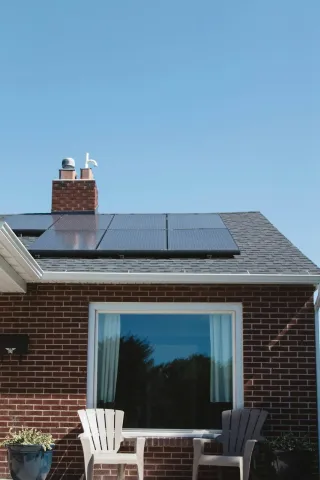Frequently Asked Questions
Is there more options that do not require me to to pay cash or to take out a loan?
Yes, programs such as PPA's (Power Purchase Agreements) and Leases do NOT require you to pay any cash or to take out any loans. All you do is get a lower payment and enjoy the savings. Go solar today with $0 down. Schedule a free consultation with a Trusted Energy Solar representative.
What is solar energy?
Solar energy is a renewable energy source that harnesses the power of the sun to generate electricity or heat.
How does solar energy work?
Solar panels, also known as photovoltaic (PV) panels, convert sunlight into direct current (DC) electricity through the photovoltaic effect.
How much does solar energy cost?
The cost of solar energy installation varies depending on factors such as the size of the system, location, and available incentives. However, prices have significantly decreased in recent years, making solar energy more affordable.
What factors should I consider before deciding to go solar?
Before deciding to go solar, there are several important factors to consider. Here's a comprehensive list of considerations: Solar Potential: Evaluate the amount of sunlight your location receives. Regions with more sunlight generally yield higher solar energy production. Energy Consumption: Understand your household's energy consumption patterns. Analyze your electricity bills to determine how much energy you use and when you use it. Roof Suitability: Assess the condition, orientation, and available space on your roof. A suitable roof receives ample sunlight and can accommodate solar panels. Local Regulations: Check for local regulations, permits, and zoning requirements for solar installations. Some areas may have restrictions or specific guidelines for solar panel installations. Financial Considerations: Determine your budget for solar installation. Consider upfront costs, financing options, and potential long-term savings. Government Incentives: Research available government incentives, tax credits, and rebates for solar installations. These can significantly reduce the overall cost. Return on Investment (ROI): Calculate the potential ROI by considering the savings on electricity bills, incentives, and the lifespan of the solar panels. Maintenance Requirements: Understand the maintenance needs of solar panels. While they generally require minimal maintenance, it's essential to be aware of any upkeep tasks. Local Climate: Consider the local climate and weather conditions. While solar panels work in various climates, extreme conditions might impact efficiency. System Size: Determine the appropriate size of the solar panel system based on your energy needs. A properly sized system maximizes cost-effectiveness. Financing Options: Explore financing options, including loans, leases, or power purchase agreements (PPAs). Each option has its implications on upfront costs and savings. Warranty and Lifespan: Review the warranty and expected lifespan of the solar panels. High-quality panels often come with longer warranties and can offer better long-term performance. Local Installer Reputation: Choose a reputable local solar installer with experience in your area. Check reviews and ask for references to ensure a reliable installation. Technology Advances: Consider the pace of technological advancements in solar energy. While current technology is efficient, staying informed about potential improvements is advisable. By carefully considering these factors, you can make an informed decision about whether solar energy is a suitable and cost-effective option for your home. Consulting with a Trusted Energy Solar representative can also be very helpful.
Can I use solar energy if I live in a cloudy area?
Solar panels can still generate electricity in cloudy conditions, although their efficiency may be slightly reduced compared to sunny areas.
How long do solar panels last?
Solar panels have a typical lifespan of 25-30 years. However, they can continue to produce electricity beyond that period with reduced efficiency.
The top 3 benefits of switching to solar energy for homeowners
The top 3 benefits of switching to solar energy for homeowners ...more
Homeowner Newsletter
November 22, 2023•2 min read

